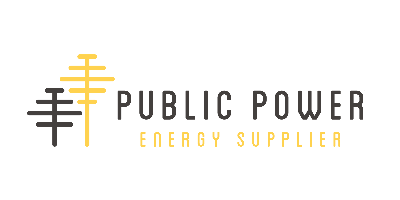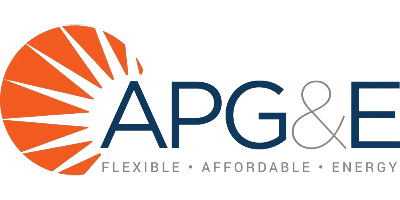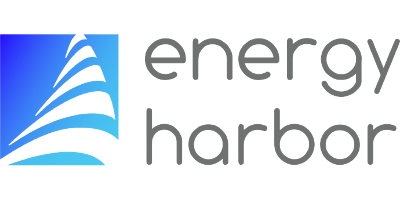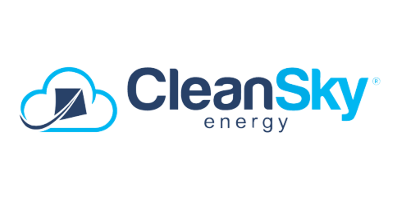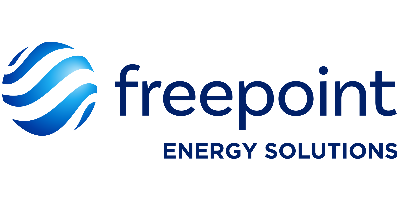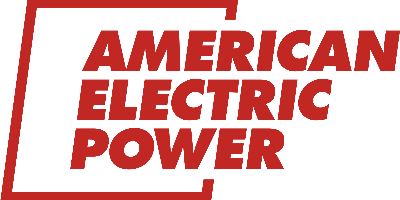
Pittsburgh Electricity Rates in Pittsburgh, PA
Enter your zip code to compare Pittsburgh electricity rates and electric companies.
Price To Compare
This is how much you would pay if you bought your energy directly from your utility.
Our 3 Cheapest Residential Plans

13.75/kWh

12.69/kWh

13.49/kWh

13.49/kWh
Recommendations For Your Home
Best Short-Term Plan
Reasons to select ClearGuarantee9Plus
-
Lowest Rate Overall
-
Lowest Short-Term Rate
-
Lowest Estimated Monthly Cost
-
Highly Rated Supplier - Clearview Energy
-
Fixed Rate Plan.
-
No Hidden Fees.
11.7¢ / kWh
All-in Rate
9 mo
Term Length
Clearview Energy - ClearGuarantee9Plus
Best 12 Month Plan
Reasons to select Electric 12 Month Fixed Rate
-
Lowest 12 Month Rate
-
Lowest Estimated Monthly Cost
-
Highly Rated Supplier - Public Power
-
Fixed Rate Plan.
-
No Hidden Fees.
12.9¢ / kWh
All-in Rate
12 mo
Term Length
Public Power - Electric 12 Month Fixed Rate
Best Long-Term Plan
Reasons to select ClearGuarantee24
-
Lowest Long-Term Rate
-
Lowest Estimated Monthly Cost
-
Highly Rated Supplier - Clearview Energy
-
Fixed Rate Plan.
-
No Hidden Fees.
13.5¢ / kWh
All-in Rate
24 mo
Term Length
Clearview Energy - ClearGuarantee24
Best Short-Term Plan
Reasons to select ClearGuarantee9Plus
-
Lowest Rate Overall
-
Lowest Short-Term Rate
-
Lowest Estimated Monthly Cost
-
Highly Rated Supplier - Clearview Energy
-
Fixed Rate Plan.
-
No Hidden Fees.
11.7¢ / kWh
All-in Rate
9 mo
Term Length
Clearview Energy - ClearGuarantee9Plus
Best 12 Month Plan
Reasons to select Electric 12 Month Fixed Rate
-
Lowest 12 Month Rate
-
Lowest Estimated Monthly Cost
-
Highly Rated Supplier - Public Power
-
Fixed Rate Plan.
-
No Hidden Fees.
12.9¢ / kWh
All-in Rate
12 mo
Term Length
Public Power - Electric 12 Month Fixed Rate
Best Long-Term Plan
Reasons to select ClearGuarantee24
-
Lowest Long-Term Rate
-
Lowest Estimated Monthly Cost
-
Highly Rated Supplier - Clearview Energy
-
Fixed Rate Plan.
-
No Hidden Fees.
13.5¢ / kWh
All-in Rate
24 mo
Term Length
Clearview Energy - ClearGuarantee24
Best Short-Term Plan
Reasons to select ClearGuarantee9Plus
-
Lowest Rate Overall
-
Lowest Short-Term Rate
-
Lowest Estimated Monthly Cost
-
Highly Rated Supplier - Clearview Energy
-
Fixed Rate Plan.
-
No Hidden Fees.
11.7¢ / kWh
All-in Rate
9 mo
Term Length
Clearview Energy - ClearGuarantee9Plus
Best 12 Month Plan
Reasons to select Electric 12 Month Fixed Rate
-
Lowest 12 Month Rate
-
Lowest Estimated Monthly Cost
-
Highly Rated Supplier - Public Power
-
Fixed Rate Plan.
-
No Hidden Fees.
12.9¢ / kWh
All-in Rate
12 mo
Term Length
Public Power - Electric 12 Month Fixed Rate
Best Long-Term Plan
Reasons to select ClearGuarantee24
-
Lowest Long-Term Rate
-
Lowest Estimated Monthly Cost
-
Highly Rated Supplier - Clearview Energy
-
Fixed Rate Plan.
-
No Hidden Fees.
13.5¢ / kWh
All-in Rate
24 mo
Term Length
Clearview Energy - ClearGuarantee24
|
Provider
|
Term Length
|
Rate at 1,000kWh
|
|---|---|---|
|
9 months
|
10.69¢
|
|
|
12 months
|
12.19¢
|
|
|
11 months
|
12.98¢
|
|
|
15 months
|
14.09¢
|
|
|
6 months
|
14.30¢
|
|
Provider
|
Term Length
|
Rate
|
|---|---|---|
|
1 month
|
11.90¢
|
|
|
6 months
|
13.40¢
|
|
|
6 months
|
14.17¢
|
|
|
18 months
|
14.29¢
|
|
|
6 months
|
16.95¢
|
Source: EnergyBot (updated daily)
Pittsburgh Electricity Rates and Plans
Looking for electric rates in Pittsburgh? EnergyBot helps you compare Pittsburgh electric rates from vetted electric suppliers in Pittsburgh so you can find the cheapest energy plans in Pittsburgh, PA.
Electric Suppliers in Pittsburgh, PA
In Pittsburgh, your electricity comes from two places: the utility that delivers the power to your home, and the supplier you choose for your energy rate. Duquesne Light is the local utility for most of the area, they handle the wires and keep the lights on. But when it comes to your rate and plan, you’re in control.
While you can enroll in the defualt utility rate (the price to compare). You also can shop around for an electric supplier to find cheaper options. Some offer lower rates, fixed prices, or renewable energy. Compare options side by side to see what works best. Just be sure to check the rate (¢/kWh), any monthly fees, and if there’s a fee to cancel early,so you know exactly what you’re signing up for. No surprises.
How to find the best electric rate for your home or business
For businesses of all sizes, from small businesses to enterprise-level, the deregulated market has enabled competition. Today, every business has the ability to compare energy plans from top energy suppliers and shop for the best rate available.
In most cases, businesses can effectively manage and/or reduce their monthly electricity costs by switching energy plans and providers every year.
Pittsburgh Energy Profile
As a four-season city, Pittsburgh experiences the best mother nature has to offer with milder temperatures throughout the year. As a result, average Pittsburgh electricity consumption is 10,402 kWh per year, which is slightly lower than the national average.
Electricity for Pittsburgh business and residential users is generated across the regional electricity grid, and several entities are collectively responsible for providing electricity:
- PJM Interconnection: PJM operates the wholesale electricity marketplace and ensures the reliability of the electricity grid, and conducts long-term planning for the future of electricity generation and transmission.
- Pennsylvania Public Utilities Commission (PUC): Electricity is regulated at the state level by the PA PUC. The PUC sets rates (which influence how much electricity costs) and manages programs to improve energy efficiency and promote renewable electricity.
For Business Users
- Average Business Size: 14,109sq ft
- Average Monthly Usage (kWh): 5,085
- Avg Monthly Bill: $456.53
- Potential Annual Savings: $821.75
For Residential Users
- Average Home Size: 2,240sq ft
- Average Monthly Usage (kWh): 867
- Avg Monthly Bill: $ 112.71
- Potential Annual Savings: $202.88
Frequently Asked Questions
To compare electric rates in Pittsburgh, PA, look at the price per kilowatt-hour (¢/kWh), contract length, and any extra fees. Compare fixed-rate vs. variable-rate plans, check how the rate compares to your utility’s Price to Compare, and review early termination fees before choosing an electric supplier.
Some Pittsburgh electricity providers charge an early termination or cancellation fee if you leave a fixed-rate plan before the contract ends. The fee varies by supplier and plan, so always review the plan details before enrolling. Variable-rate plans typically do not have cancellation fees.
Why Trust EnergyBot
People Trust EnergyBot
In 7 years of working to demystify the energy industry, EnergyBot has helped over 100,000 customers. Whether you're looking to find the cheapest electricity rate, a stable contract that fits your budget, or plan for unique energy needs, we’ve been there to help. And we've gotten pretty darn good at it, with over 2,000 5-star reviews and millions in savings for our customers.
By pulling real energy usage data and sharing expert insights directly with you, we're empowering you to take control of your electricity bill. Whether that means cutting your monthly bill, improving energy efficiency, or both — we're always here to help.
Most importantly, we're here to help you save money. Not to sell you something you don’t need. We're paid a small commission fee by electricity providers when you sign a contract — not out of your rate. That means we can help you make the best energy decision for your home or business without taking a dime from your wallet.
2,000+ 5 Star Reviews
Trusted reviews directly from customers who have saved with us.
No Paid Placements
EnergyBot does not accept payments from suppliers to promote their plans.
120 Suppliers
We work with a variety of energy providers to ensure we can help you find the best plan.
